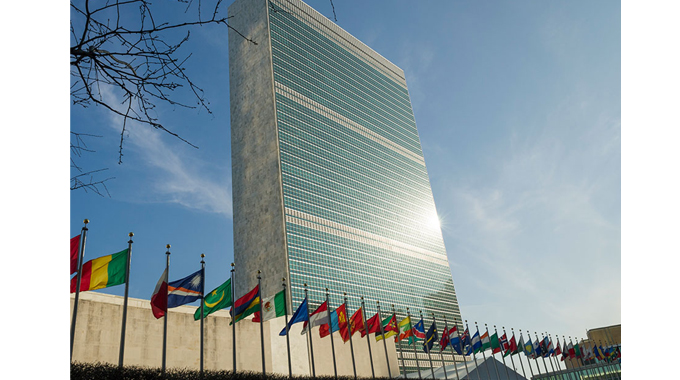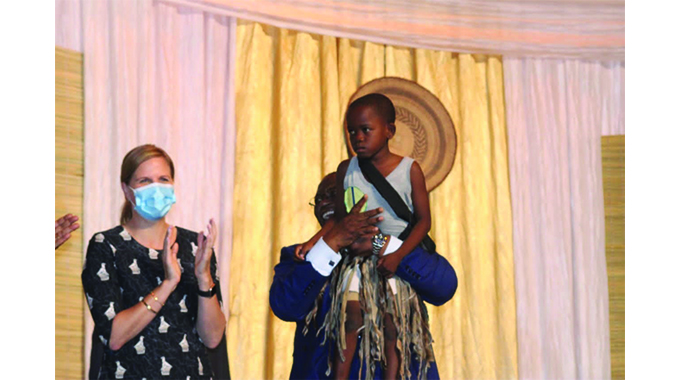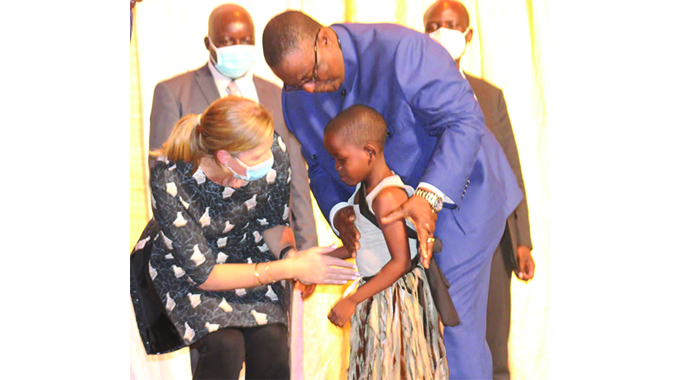Africa not responsible for global crisis, but suffers more: UN

Prosper Ndlovu in Niamey, Niger
AFRICA is not responsible for the prevailing global economic and political shocks but continues to bear resultant strainful impacts, which demands enhanced support from the developed world and international finance institutions towards cushioning developing economies, a senior United Nations official has said.
Speaking during the official opening session of the African Union Extra-Ordinary Heads of States and Governments Summit on Industrialisation and Economic Transformation here yesterday, United Nations Industrial Development Organisation (UNIDO) director-general, Mr Gerd Muller, said Africa possesses immense economic potential if it gets adequate support from the global community.
He, however, said the continent was being crippled by disruptive geo-political factors that are not of its own making such as climate change complications, the Russia-Ukraine and Covid-19 pandemic, which have severely affected a majority of developing economies.
In the case of Zimbabwe, economic development efforts are being retarded by the continued imposition of illegal sanctions by the United States of America and its Western allies.
Despite these setbacks, Mr Muller said UNIDO was convinced that Africa is the continent with opportunities for the future, with an advantage of a dynamic youth dividend.
However, the Covid-19 pandemic and the rising costs of critical commodities due to the Russia-Ukraine war and climate change factors are crippling Africa, said Mr Muller.
“And yet the African continent is not responsible for any of these crises. The first world countries must take responsibility,” he told the delegates who included President Mnangagwa and fellow African regional leaders.

President Mnangagwa
The UNIDO official said the quest for economic justice, fair trade and enhanced access to critical global finance, is what Africa needs if it is to drive a formidable industrial revolution.
“Strong aid is needed for African states and more support from the IMF (International Monetary Fund) and World Bank with access to finance,” he said.
“Compensation and support for African States is also critical in the fight against climate change impacts,” said Mr Muller.
In view of the need to boost regional production and trade volumes as part of enhancing economic resilience for Africa, the UNIDO representative also called for collaborative efforts in harnessing investments towards critical regional infrastructure such as energy and transport, which are key enablers of growth.
He commended the Africa Union for taking bold steps towards transforming the continent through the African Continental Free Trade Area (AfCFTA), which he said must be buttressed by solid industrialisation strategies.
Mr Muller said his organisation stands ready to partner and support the region in several projects that seek to unlock regional Industrialisation.
“The processing of raw materials in your continent into higher value products is critical in transforming the regional economy. Africa needs cars made from the continent and I am glad you are making some strides in the pharmaceutical sector,” he said.
“Africa needs its own vaccines and growing capacity in this direction is critical. We also need to develop more energy supply capacity to even cover rural areas.
“Africa can be a hub for a green model economy with capacity to create more decent jobs. I believe it is the future of Africa.”
Speaking at the same platform, African Development Bank (AfDB) president, Dr Akinwunmi Adesina, said in a speech read on his behalf that the success of the AfCFTA demands the continent to move with speed in closing the infrastructure gap and enhancing access to industrialisation finance so as to unlock higher regional production capacity.
He also pledged the bank’s continued support to ensure sustained momentum towards transforming Africa.
AfreximBank chairperson and president, Professor Bennedict Oramah, said his organisation was working closely with the African Union Commission to unlock higher continental Industrialisation as well as promoting trade.
He said AfreximBank has helped central banks across Africa to mitigate the adverse impacts of Covid-19 through procurement of vaccines and protective clothing as well as facilitating food and fertiliser, among other interventions.
This year’s summit is being held under the theme: “Industrialising Africa: Renewed Commitment Towards an Inclusive and Sustainable Industrialisation and Economic Diversification”.
It is part of the Africa Industrialisation Week (AIW — 20-25 November 2022), annual commemorative activities aimed at highlighting Africa’s renewed determination and commitment to industrialisation.












Comments